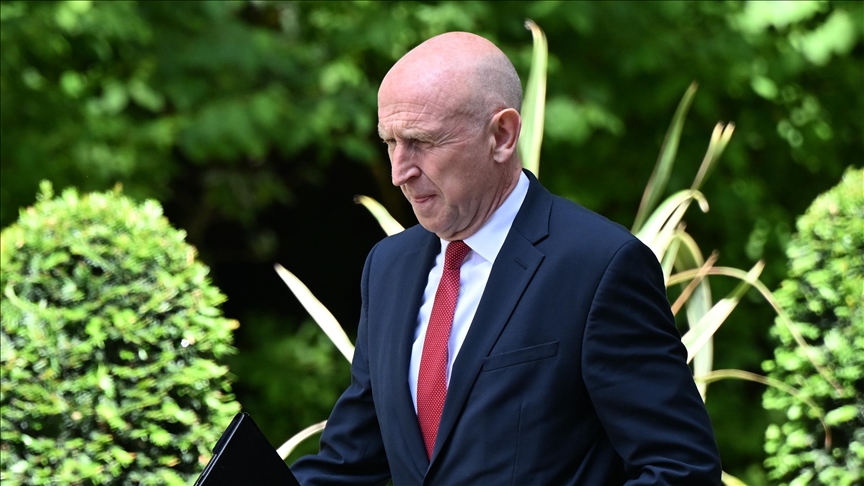UK defense secretary ‘deeply uncomfortable’ with super-injunction over Afghan data leak
Nearly 19,000 Afghans affected as government apologizes; former minister defends legal action to protect lives

LONDON
UK Defense Secretary John Healey on Wednesday admitted he is “deeply uncomfortable” with the government's use of a super-injunction related to a major data leak that endangered thousands of Afghans.
The UK government apologized on Tuesday to nearly 19,000 Afghans whose personal data was accidentally leaked in 2022, revealing that a secret scheme had been introduced to protect many of those affected.
Healey confirmed in parliament that the Ministry of Defense accidentally shared the names of more than 18,000 people who had applied to the Afghan Relocations and Assistance Policy in February 2022.
Speaking to Sky News, Healey said: “I'm really deeply uncomfortable with the idea that a government applies for a super-injunction.”
He also revealed he was not fully briefed on the matter, saying: “If there are any [other] super injunctions in place, I just have to tell you -- I don't know about them. I haven't been read into them.”
He added: “The important thing here now is that we've closed the scheme,” and insisted that “no one takes a decision like this lightly.”
Reflecting on the impact of the leak, Healey said: “It's why I spent many hours thinking about the safety of people in a country miles away, people I will never meet.”
Former Defense Minister Wallace: No super-injunction sought under conservatives
Former UK Defense Secretary Ben Wallace said the previous conservative-led government did not seek a super-injunction in relation to the data breach.
“When we applied in August 2023, when I was secretary of state, we didn’t apply for a super-injunction. We applied for a four-month injunction, a normal injunction,” he told BBC Radio 4’s Today program.
He said the decision to convert it into a super-injunction was made later and that he was not present in court to understand why the change occurred.
Defending the decision to seek legal protection for those affected, Wallace explained: “I took a decision that the most important priority was to protect those people who could have been or were exposed by this data leak in Afghanistan, living amongst the Taliban who had no regard for their safety, or indeed potentially could torture them or murder them.”
“Originally, it was assessed there’d be about 12,000 people spanning the 20 years, plus their families, who had been leaked to working directly for the British state. We didn’t want the whole Afghan army to come,” he added.
"These were people directly linked to different parts of our military, and they were 12,000. The total number seems to be 18,000. I believe they were the right people,” Wallace shared.


